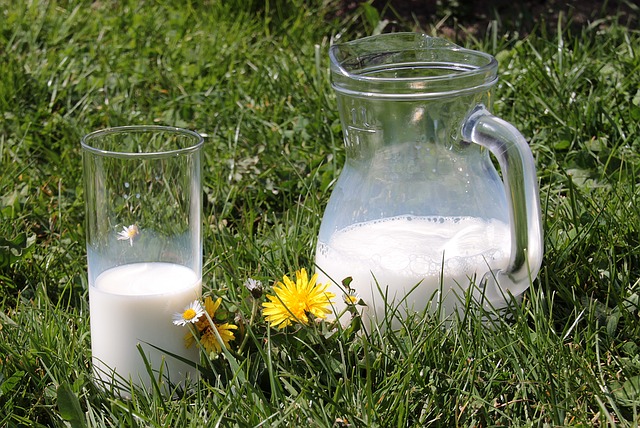Milk is being considered organic compound and a good source of calcium, protein & other nutrients. It is extremely beneficial to human and animals alike. So now the question is that may it also be beneficial for plants? YES, we can use milk as fertilizer, but there are both positive & negative aspects associated with it. Let’s discuss the advantage & disadvantage of using Milk As Fertilizer.

Milk can actually benefit your garden and the plants.
Benefits
Here are the few positive aspects of using it in the garden:
Milk acts as fertilizer
Milk is a good source of calcium, which can help strengthen the structure of a plant. It also contains some beneficial proteins, vitamin B and sugars that are good for plants which improves their overall health and crop yields. Plants also use calcium for growth. Blossom end rot, which is commonly seen in tomatoes and peppers, is caused by a calcium deficiency. Feeding plants with milk ensures they will get enough moisture and calcium.
Milk can prevent fungus
Milk can be used as an effective anti-fungal agent. Combine 1 part milk to 2 or 3 parts water and spray this mixture on the leaves of your plants every 10-15 days.
Milk can disinfect
When milk is applied in areas with direct sunlight the milk takes on antiseptic-like properties. You can dip your garden pruners in milk to disinfect them instead of bleach.
Milk improves the health of soil
Using milk in your soil or compost pile can make the soil healthier because the soil absorbs the fats and vitamins inside the milk.
Milk can deter some insects
If applied properly, Milk can also be used as pesticides, Cow’s milk can deter some bugs like aphids, thrips, powdery mildew and mites.
Drawbacks
Here are the few negative aspects of using it in the garden:
- Too much of milk is not going to be useful as the bacteria in it will spoil which results in poor growth.
- Using skim milk may induce black rot and soft rot.
TIPS
Don’t use milk as a whole. Always dilute it by adding minimum 50% milk & 50% water.
WATCH THE VIDEO
In Conclusion
Milk isn’t just for your morning cereal or coffee – it can also be a great fertilizer for your plants! Using milk as a fertilizer for plants can provide them with the calcium and other nutrients they need to grow strong and healthy. Simply dilute raw milk with water and use it to water your plants or use it as a foliar spray to nourish leaves. You can also pour spoiled milk directly onto your soil as a natural compost. However, it’s important to note that too much milk can harm your plants, so be sure to use it in moderation. A good rule of thumb is to use a 50/50 mix of milk and water. So, the next time you’re considering plant care, think about feeding milk to your plants for a boost in growth and health!
milk fertilizer for plants, milk for plants, milk as fertilizer for plants, milk plant, milk in gardeing, why feed milk to your plants, using milk to watering the plant, pour milk, use raw milk in garden, milk spray for plants, can you use spoiled milk on plants, spraying mil on plants, does milk help plants frow faster than water, how to use milk for plants, using milk for plant care, is milk good for plants
